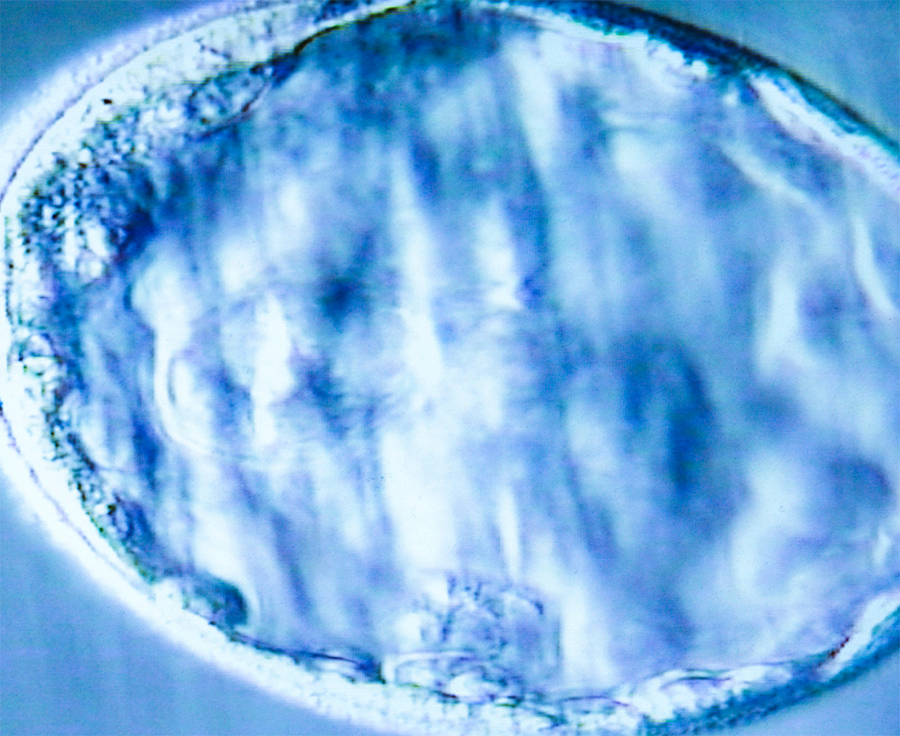We offer expert testing and selection of embryos for genetic and chromosomal disorders before transfer to the uterus.
Preimplantation Genetic Testing for Monogenic Disorders (PGT-M)
PGT-M is a technique used in conjunction with In Vitro Fertilization (IVF) to test embryos for specific genetic disorders before their transfer to the uterus. PGT-M aims to identify and select embryos for transfer that won’t transmit heredity diseases. PGT-M involves analyzing cells from blastocyst embryos.
PGT-M can identify the presence of single-gene disorders, which are genetic diseases resulting from a single inherited mutated gene. If both parents are carriers of a genetic condition, PGT-M makes it possible to decrease their risk of passing the disorder to their child.
For CACRM to perform PGT-M, a couple undergoes an IVF cycle to obtain eggs subsequently fertilized and developed in the IVF Embryology Laboratory. A highly skilled embryologist uses a sophisticated microscope setup to extract cells from the embryo at the blastocyst stage. The cells are analyzed for the particular genetic testing at the PGT laboratory.
The IVF team uses the results from each embryo to determine which blastocysts are affected by the genetic disorder or not. Then the unaffected embryo can be transferred to the patient’s uterus or gestational surrogate to attempt a pregnancy.

Preimplantation Genetic Testing for Aneuploidy (PGT-A)
PGT-A is used to improve your chances of a successful pregnancy and lower the risk for miscarriage. One of the most common reasons we perform PGT-A is to decrease the risk of having a child with a chromosomal abnormality, such as Down Syndrome, as a woman ages. Genetic screening of the preimplantation embryo can determine whether the embryo could potentially be affected by a chromosomal abnormality. Therefore, PGT-A reduces the chance of conceiving a baby with a chromosomal abnormality by more than 90%.
Embryos are screened for aneuploidy, missing, or additional numbers of chromosomes. Aneuploidy is a leading cause of miscarriage and implantation failure when the embryo does not implant in the uterus. The goal of PGT-A is to identify and not transfer chromosomally abnormal embryos. Instead, we transfer the chromosomally normal embryos to help achieve a successful pregnancy.
Preimplantation Genetic Testing for Structural Chromosomal Rearrangements, PGT-SR
CACRM offers a third category of preimplantation genetic testing: PGT-SR.
Chromosomes are structures within the cell nucleus’ long threads of DNA. Humans contain 23 pairs of chromosomes, which, when combined, comprise our unique genetic code. A gene is a particular part of the double-helix DNA molecules in each cell in the human body. They are arranged in a consecutive sequence on chromosomes and are the functional units of heritable material. In other words, the basic unit through which genetic information is stored and passed between generations.
Genes help define who we are as individuals and give us unique physical and psychological characteristics.
Each person inherits 23 pairs of chromosomes, 46 pairs in total, from their parents. Chromosomes are responsible for ensuring DNA is accurately copied and distributed; however, accurate replication does not always occur when embryos are created. In some instances, structural chromosomal rearrangements can happen.
PGT-SR can analyze the following types of structural chromosomal rearrangements:
- Translocations: Segments of the chromosomes that change location
- Inversions: Inverted chromosomes, flipped, or reversed
- Duplications: Portions of the chromosomes that are duplicated
- Deletions: Portions of the chromosomes that are deleted or missing
Until they are trying to have a baby, intended parents usually are unaware they are carriers of certain types of structural chromosomal arrangements. SRTs can usually explain intended parents’ experience of multiple pregnancy losses. SRTs can either be inherited or occur spontaneously (de novo) in approximately one out of 500 people who are carriers. An embryo with a structural chromosomal rearrangement is unfortunately not compatible with life.
Therefore, the goal of PGT-SR is to identify the embryos that have the correct amount and the normal arrangement of chromosomes to transfer a healthy embryo(s) to the uterus during the IVF/embryo transfer cycle.
Examples of Inherited Genetic Disorders Detected with PGT-M
Family History of genetic disorders
- Breast Cancer
- Cystic Fibrosis (CF)
- Thalassemia
- Tay Sachs
- Sickle Cell Disease
- Fragile X
- Muscular Dystrophy
- Neurofibromatosis
- Hemophilia | bleeding disorders
- Downs Syndrome
- Familial dysautonomi
Most common reasons for PGT-M & PGT-A
- Chromosome disorders (example/ Down’s Syndrome, Turner’s Syndrome)
- Advanced maternal age (women over 35 years of age)
- Recurrent miscarriages
- Congenital Bilateral Absence of Vas Deferens (CBAVD)
- Azoospermia or absence of sperm in semen
- Severe oligospermia
Types of Structural Rearrangements
- Translocations
- Inversions
- Duplications
- Deletions
Please note: No single test can accurately predict the risk of all defects in a child. Many birth defects, such as those related to environmental and toxic exposures, and those that are random and unexplained, are not genetically based and may not be detected with genetic screening.
